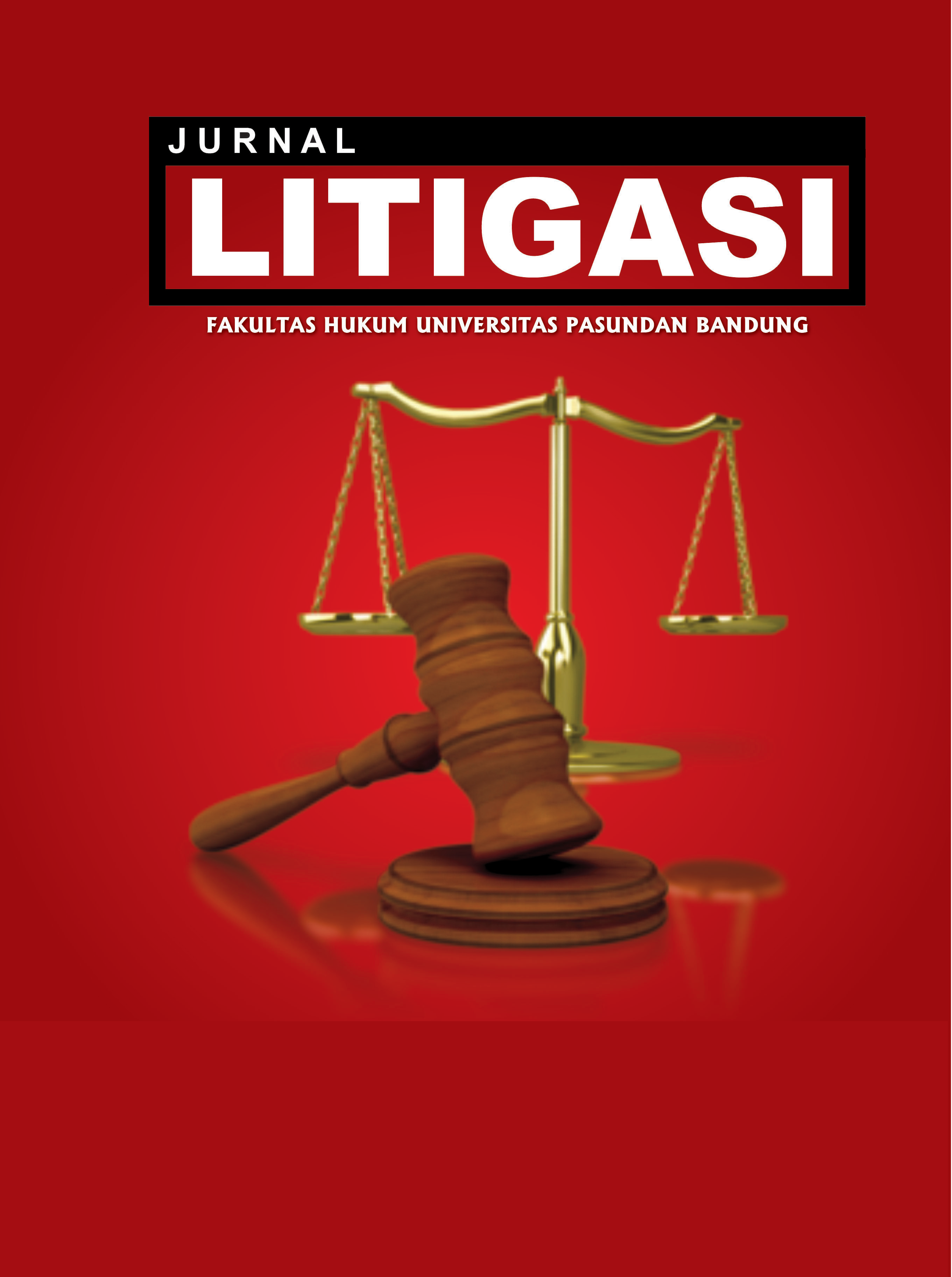KAJIAN PERLUASAN KUALIFIKASI MAKNA BARANG DALAM YURISPRUDENSI HUKUM PIDANA BELANDA DAN INDONESIA DI ERA SIBER
DOI:
https://doi.org/10.23969/litigasi.v25i1.13149Abstract
The development of information technology, especially the internet, has affected criminal law. One of the resulting impacts is the qualification of goods in the cyber era. The development of criminal law in the Netherlands, particularly the Criminal Code, related to information technology is progressive regarding the qualification of goods, including cases related to the interpretation of goods in cyberspace by the Supreme Court of the Netherlands. This article argues that Dutch criminal law has repeatedly extended the qualification of the meaning of goods related to cybercrime through the jurisprudence of the Supreme Court of the Netherlands. The expansion of the qualification of goods in Dutch criminal law contextually includes account balances, online gaming features, and credit. Indonesian jurisprudence has once expanded the scope of goods in deciding account balance cases. The extension of the qualification of goods, including computer data in the National Criminal Code, based on problematic decisions of the Arnhem High Court in the Netherlands, is contradictory to the spirit of national criminal law reform.
Keywords: Qualification, Goods, Criminal Law.
Downloads
References
Anwary, I. (2023). Evaluating Legal Frameworks for Cybercrime in Indonesian Public Administration: An Interdisciplinary Approach. International Journal of Cyber Criminology, 17(1), 12–22. https://doi.org/10.5281/zenodo.4766601
Brants, C., Jackson, A., & Wilson, T. J. (2020). A Comparative Analysis of Anglo-Dutch Approaches to ‘Cyber Policing’: Checks and Balances Fit for Purpose? Journal of Criminal Law, 84(5), 451–473. https://doi.org/10.1177/0022018320952561
Curtis, J., & Oxburgh, G. (2023). Understanding cybercrime in ‘real world’ policing and law enforcement. Police Journal, 96(4), 573–592. https://doi.org/10.1177/0032258X221107584
Hardinanto, A. (2017). Manfaat Analogi Dalam Hukum Pidana Untuk Mengatasi Kejahatan yang Mengalami Modernisasi. Yuridika, 31(2), 220. https://doi.org/10.20473/ydk.v31i2.4782 Koops, E. J. (2006). Cybercrime Legislation in the Netherlands.
Leukfeldt, E. R., & Roks, R. A. (2021). Cybercrimes on the Streets of the Netherlands? An Exploration of the Intersection of Cybercrimes and Street Crimes. Deviant Behavior, 42(11), 1458–1469. https://doi.org/10.1080/01639625.2020.1755587
Marzuki, Peter Mahmud. (2023). Penelitian Hukum: Edisi Revisi. Kencana Prenada Media.
Mahkamah Agung Republik Indonesia No. 1852 K/Pid/1988
Nederlands Jurisprudentie 583 (1982)
Nederlands Jurisprudentie 80 (1984)
Nederlands Jurisprudentie 635 (1995).
Nederlands Jurisprudentie 574 (1997)
Nederlands Jurisprudentie 535 (2012)
Nederlands Jurisprudentie 536 (2012)
Oerlemans, J. J. (2017). De Wet Computercriminaliteit III: Meer Handhaving op Internet. https://hdl.handle.net/1887/54783
Kaspersen, H. (1988). Hukum Pidana Belanda dan Penyalahgunaan Computer (tidak diterbitkan)
Kementerian Hukum dan Hak Asasi Manusia. (2015). Naskah Akademik Rancangan Undang-undang Kitab Undang-undang Hukum Pidana.
Raharjo, A. (2022). Prevention of Cybercrime through the Development of Criminal Responsibility Principles for Internet Users. Jurnal Dinamika Hukum, 21(3), 499. https://doi.org/10.20884/1.jdh.2021.21.3.3256
Rozah, U., Saefudin, Y., Barkhuizen, J., Endah, A. M., & Astuti, S. (2019). The Penal Policy on Cyber Adultery.
Ryngaert, C. (2023). Extraterritorial Enforcement Jurisdiction in Cyberspace: Normative Shifts. German Law Journal, 24(3), 537–550. https://doi.org/10.1017/glj.2023.24
Schiks, J. A. M., van de Weijer, S. G. A., & Leukfeldt, E. R. (2022). High Tech Crime, High Intellectual Crime? Comparing the Intellectual Capabilities of Cybercriminals, Traditional Criminals and Non-criminals. Computers in Human Behavior, 126. https://doi.org/10.1016/j.chb.2021.106985
Sitompul, J. (2019). Developing a Legal Framework of Personal Data Protection in The Indonesian Criminal Procedure Law. Indonesia Law Review, 9(3), 201–221. https://doi.org/10.15742/ilrev.v9n3.582
Svantesson, D. J. B. (2018). Jurisdictional Issues and the Internet – a Brief Overview 2.0. Computer Law and Security Review, 34(4), 715–722. https://doi.org/10.1016/j.clsr.2018.05.004
Tim Pengkajian Bidang Hukum Pidana. (1987). Laporan Hasil Pengkajian Bidang Hukum Pidana Tahun 1986/1987 Jilid III.
Tim Pengkajian Rancangan Undang-undang Bidang Hukum Pidana. (1993). Laporan Kegiatan Tim Pengkajian Rancangan Undang-undang Bidang Hukum Pidana 1993.
ten Voorde, J. M. (2017). The Dutch Penal Code Under Review. Indonesia Law Review, 7(3). https://doi.org/10.15742/ilrev.v7n3.355
Downloads
Submitted
Accepted
Published
How to Cite
Issue
Section
License
Copyright (c) 2024 LITIGASI

This work is licensed under a Creative Commons Attribution-ShareAlike 4.0 International License.
Copyright © 2026 Jurnal LITIGASI (e-Journal).
Jurnal LITIGASI (e-Journal) adopts the CC-BY license as the optimal license for publishing, distributing, using, and reusing scholarly work. Authors who publish with this journal retain copyright and grant the journal right of first publication with the work simultaneously licensed under a Creative Commons Attribution 4.0 International License (CC-BY 4.0). This license allows others to share, copy, distribute, and adapt the work, provided that the work's authorship and initial publication in this journal are properly cited.






























